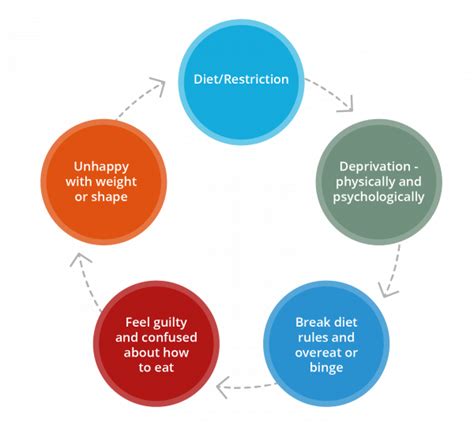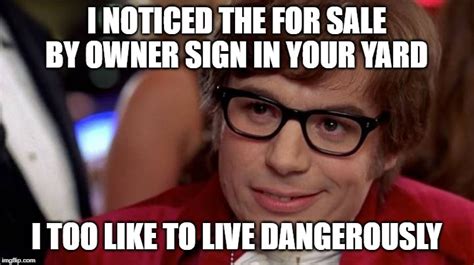
The rising popularity of restrictive eating habits, often disguised as dieting, is blurring the lines with disordered eating, prompting nutritionists to issue warnings about the potential dangers to physical and mental health.
Nutritionists are raising concerns about the increasing normalization of restrictive diets, intermittent fasting, and other rigid eating patterns, cautioning that these behaviors, while often perceived as healthy or weight-management strategies, can easily spiral into diagnosable eating disorders. The focus on food rules, calorie counting, and eliminating entire food groups can mask underlying psychological issues and lead to serious health consequences.
“What may start as a diet could quickly become disordered eating,” says experts, highlighting the need for increased awareness and a more nuanced understanding of the difference between healthy eating and potentially harmful obsessions with food and body image.
The current emphasis on wellness and healthy lifestyles has inadvertently created an environment where extreme eating behaviors are not only tolerated but often celebrated. Social media platforms are filled with influencers promoting restrictive diets and fitness challenges, further fueling the normalization of these practices. This can make it difficult for individuals to recognize when their eating habits have crossed the line into disordered eating.
“The line between ‘healthy’ and harmful is getting increasingly blurred,” states Dr. So-and-so, a registered dietitian specializing in eating disorders. “We’re seeing more and more people who believe they’re simply making healthy choices, but their behaviors are actually indicative of a much deeper problem.”
One of the key issues is the restrictive nature of many popular diets. These diets often involve eliminating entire food groups, such as carbohydrates or fats, or severely limiting calorie intake. While these approaches may lead to short-term weight loss, they can also deprive the body of essential nutrients and disrupt normal metabolic function.
Furthermore, restrictive eating can have significant psychological consequences. It can lead to increased anxiety and stress around food, obsessive thoughts about weight and body shape, and a distorted perception of one’s own body. In some cases, it can also trigger or exacerbate underlying mental health conditions, such as depression and anxiety disorders.
The rise of intermittent fasting, another popular eating trend, is also raising concerns among nutritionists. While some studies suggest that intermittent fasting may have certain health benefits, such as improved insulin sensitivity and reduced inflammation, it can also be a slippery slope for individuals prone to disordered eating. The rigid structure of intermittent fasting, with its specific eating windows and fasting periods, can easily lead to obsessive thoughts and behaviors around food.
“Intermittent fasting can be a useful tool for some people, but it’s not appropriate for everyone,” warns registered dietitian Dr. What-So-ever. “It’s particularly risky for individuals with a history of eating disorders or those who are prone to anxiety and obsessive thinking.”
The pressure to conform to societal ideals of thinness and beauty is a major contributing factor to the rise in disordered eating. Social media platforms often perpetuate unrealistic body standards, leading individuals to feel insecure about their own bodies and to engage in extreme measures to achieve the “perfect” physique.
“Social media has played a significant role in normalizing disordered eating behaviors,” says Dr. Who-Knows, a psychologist specializing in body image issues. “The constant exposure to images of ‘perfect’ bodies can lead to feelings of inadequacy and a desire to change one’s own body, often through unhealthy means.”
Recognizing the signs of disordered eating is crucial for early intervention and treatment. Some common signs include:
- Obsessive thoughts about food, weight, and body shape
- Restrictive eating behaviors, such as eliminating entire food groups or severely limiting calorie intake
- Binge eating, or consuming large amounts of food in a short period of time
- Purging behaviors, such as vomiting, using laxatives, or excessive exercise
- Distorted body image, or a negative perception of one’s own body
- Anxiety and stress around food
- Social isolation due to concerns about food and eating
If you or someone you know is struggling with disordered eating, it’s important to seek professional help. A registered dietitian, therapist, or psychiatrist can provide guidance and support in developing healthy eating habits and addressing any underlying psychological issues.
“Eating disorders are serious mental illnesses that can have devastating consequences,” emphasizes Dr. What-Is-Name, a psychiatrist specializing in eating disorders. “Early intervention is key to preventing long-term health problems and improving the chances of recovery.”
The key to distinguishing between healthy eating and disordered eating lies in the motivation behind the behavior. Healthy eating is driven by a desire to nourish the body and promote overall well-being, while disordered eating is driven by a desire to control weight and shape, often stemming from underlying psychological issues.
“It’s important to ask yourself why you’re engaging in certain eating behaviors,” advises registered dietitian Dr. Why-Do-We-Care. “Are you doing it because you genuinely enjoy the food and it makes you feel good, or are you doing it because you’re trying to control your weight and shape?”
The current focus on wellness and healthy lifestyles has created a complex landscape where extreme eating behaviors are often disguised as virtuous choices. It is crucial to cultivate a more critical awareness of these trends and to prioritize a balanced, mindful approach to eating that promotes both physical and mental well-being. This requires challenging societal ideals of thinness and beauty, promoting body positivity, and encouraging individuals to seek professional help when needed.
Furthermore, healthcare professionals need to be better equipped to identify and address disordered eating behaviors in their patients. This includes providing education and training on the warning signs of eating disorders and developing strategies for initiating conversations about eating habits and body image.
“We need to create a culture where it’s okay to talk about eating disorders and to seek help,” says Dr. Who-Cares, a therapist specializing in eating disorders. “By increasing awareness and reducing stigma, we can help more people get the support they need to recover.”
Ultimately, the goal is to shift the focus from weight and shape to overall health and well-being. This requires embracing a more holistic approach to health that takes into account physical, mental, and emotional factors. It also requires challenging the pervasive diet culture that promotes restrictive eating and unrealistic body standards.
“We need to move away from the idea that weight is the ultimate indicator of health,” concludes Dr. Someone-Else, a registered dietitian specializing in intuitive eating. “True health is about nourishing our bodies with wholesome foods, engaging in regular physical activity, and taking care of our mental and emotional well-being.”
The rise of restrictive eating habits disguised as dieting presents a significant challenge to public health. By raising awareness, promoting a more nuanced understanding of eating disorders, and challenging societal ideals of thinness and beauty, we can help individuals develop healthier relationships with food and their bodies.
The conversation around eating habits requires a shift in focus, moving away from the obsession with weight loss and towards a more holistic view of health that encompasses physical, mental, and emotional well-being. This entails promoting body positivity, challenging diet culture, and providing individuals with the resources and support they need to develop healthy eating patterns and seek help when necessary.
This issue highlights the urgent need for increased awareness and education about eating disorders, as well as a more critical examination of the societal pressures that contribute to their development. By fostering a culture of acceptance and support, we can empower individuals to prioritize their health and well-being over unrealistic beauty standards.
The pervasiveness of social media and its influence on body image perceptions cannot be ignored. The constant exposure to curated images of “perfect” bodies can fuel feelings of inadequacy and drive individuals to engage in extreme dieting behaviors. It is crucial to promote media literacy and encourage critical thinking about the messages we consume online.
The normalization of restrictive eating habits poses a serious threat to public health, particularly among young people. Early intervention and prevention efforts are essential to address this growing problem and to ensure that individuals have the opportunity to develop healthy relationships with food and their bodies.
Furthermore, it is important to recognize that eating disorders are complex mental illnesses with biological, psychological, and social components. Treatment requires a multidisciplinary approach that addresses all of these factors.
The challenge lies in creating a society that values health and well-being over appearance. This requires a fundamental shift in attitudes and beliefs about body size and shape. It also requires a commitment to promoting body positivity and celebrating diversity.
The conversation about dieting and eating disorders must be ongoing and inclusive. It is essential to create spaces where individuals can share their experiences, ask questions, and receive support. By working together, we can create a more compassionate and understanding society that prioritizes the health and well-being of all individuals.
Ultimately, the goal is to empower individuals to make informed choices about their health and to develop a healthy relationship with food and their bodies. This requires providing them with the knowledge, skills, and support they need to navigate the complex world of dieting and body image.
The increasing prevalence of disordered eating behaviors underscores the need for a more critical examination of the messages we receive about food and body image. By challenging societal norms and promoting body positivity, we can create a more supportive environment for individuals to develop healthy relationships with themselves and their bodies.
Frequently Asked Questions (FAQ)
1. What is the difference between dieting and disordered eating?
The line between dieting and disordered eating can be blurry, but the key difference lies in the motivation and the impact on one’s life. Dieting typically involves making conscious food choices with the goal of improving health or managing weight, while disordered eating is characterized by obsessive thoughts and behaviors around food, weight, and body shape that negatively impact physical and mental health. According to experts, “What may start as a diet could quickly become disordered eating.” Disordered eating often involves rigid rules, extreme restrictions, and feelings of guilt or shame around food. Healthy eating is driven by a desire to nourish the body and promote overall well-being, while disordered eating is driven by a desire to control weight and shape, often stemming from underlying psychological issues. Dr. Why-Do-We-Care advises, “It’s important to ask yourself why you’re engaging in certain eating behaviors. Are you doing it because you genuinely enjoy the food and it makes you feel good, or are you doing it because you’re trying to control your weight and shape?”
2. What are the warning signs of disordered eating?
Recognizing the signs of disordered eating is crucial for early intervention and treatment. Some common signs include:
- Obsessive thoughts about food, weight, and body shape
- Restrictive eating behaviors, such as eliminating entire food groups or severely limiting calorie intake
- Binge eating, or consuming large amounts of food in a short period of time
- Purging behaviors, such as vomiting, using laxatives, or excessive exercise
- Distorted body image, or a negative perception of one’s own body
- Anxiety and stress around food
- Social isolation due to concerns about food and eating
- Excessive exercise driven by a need to “burn off” calories rather than for enjoyment or health
- Strict adherence to food rules and feeling anxious or guilty when those rules are broken
- Preoccupation with calorie counting, macro tracking, or weighing oneself frequently
- Hiding or hoarding food
- Changes in mood, such as increased irritability, anxiety, or depression
- Physical symptoms, such as fatigue, dizziness, or changes in menstruation
If you or someone you know is experiencing these signs, it’s important to seek professional help.
3. How does social media contribute to disordered eating?
Social media plays a significant role in normalizing disordered eating behaviors and perpetuating unrealistic body standards. Platforms like Instagram and TikTok are filled with images of idealized bodies and promote restrictive diets and fitness challenges. This constant exposure can lead to feelings of inadequacy and a desire to change one’s own body through unhealthy means. Dr. Who-Knows, a psychologist specializing in body image issues, states, “Social media has played a significant role in normalizing disordered eating behaviors. The constant exposure to images of ‘perfect’ bodies can lead to feelings of inadequacy and a desire to change one’s own body, often through unhealthy means.” Furthermore, the anonymity of the internet can embolden individuals to share harmful dieting advice and engage in online communities that promote disordered eating behaviors. The use of filters and editing tools can also create unrealistic expectations about appearance, further contributing to body dissatisfaction and the pursuit of unattainable beauty standards.
4. Is intermittent fasting considered a form of disordered eating?
Intermittent fasting is not inherently a form of disordered eating, but it can be a slippery slope for individuals prone to obsessive thinking or those with a history of eating disorders. The rigid structure of intermittent fasting, with its specific eating windows and fasting periods, can easily lead to obsessive thoughts and behaviors around food. For some, it can be a way to restrict calories under the guise of a “healthy” lifestyle choice. Dr. What-So-ever, a registered dietitian, warns, “Intermittent fasting can be a useful tool for some people, but it’s not appropriate for everyone. It’s particularly risky for individuals with a history of eating disorders or those who are prone to anxiety and obsessive thinking.” If intermittent fasting is causing anxiety, distress, or negative impacts on your physical or mental health, it may be a sign of disordered eating. It is crucial to assess one’s motivations for engaging in intermittent fasting and to monitor its impact on overall well-being.
5. What type of professional can help someone struggling with disordered eating?
A multidisciplinary team of professionals is typically involved in the treatment of disordered eating. The team may include:
- Registered Dietitian (RD): A registered dietitian can provide guidance on developing healthy eating habits, restoring nutritional balance, and addressing any nutrient deficiencies. They can help individuals develop a balanced meal plan and learn to enjoy food without guilt or anxiety.
- Therapist or Psychologist: A therapist or psychologist can help individuals address the underlying psychological issues that contribute to disordered eating, such as body image concerns, anxiety, depression, or trauma. Cognitive-behavioral therapy (CBT) and dialectical behavior therapy (DBT) are often used to treat eating disorders.
- Psychiatrist: A psychiatrist can prescribe medication to manage any co-occurring mental health conditions, such as anxiety or depression, that may be contributing to disordered eating. They can also monitor the individual’s mental health and adjust medications as needed.
- Medical Doctor (MD): A medical doctor can monitor the individual’s physical health and address any medical complications that may arise from disordered eating, such as electrolyte imbalances, heart problems, or bone loss.
- Family Therapist: In some cases, family therapy may be beneficial to address any family dynamics that may be contributing to disordered eating.
Dr. What-Is-Name, a psychiatrist specializing in eating disorders, emphasizes, “Eating disorders are serious mental illnesses that can have devastating consequences. Early intervention is key to preventing long-term health problems and improving the chances of recovery.”
6. What are the long-term health consequences of disordered eating?
Disordered eating can have a wide range of long-term health consequences, affecting both physical and mental well-being. The specific consequences depend on the type and severity of the disordered eating behaviors. Some potential long-term health consequences include:
- Cardiovascular problems: Eating disorders can lead to heart problems such as arrhythmias, heart failure, and low blood pressure.
- Gastrointestinal problems: Restrictive eating and purging behaviors can damage the digestive system, leading to problems such as constipation, diarrhea, bloating, and irritable bowel syndrome (IBS).
- Bone loss: Restrictive eating can lead to bone loss and osteoporosis, increasing the risk of fractures.
- Reproductive problems: Eating disorders can disrupt hormonal balance, leading to irregular periods, infertility, and complications during pregnancy.
- Kidney damage: Purging behaviors can damage the kidneys, leading to kidney failure.
- Dental problems: Vomiting can erode tooth enamel, leading to cavities and other dental problems.
- Mental health problems: Eating disorders are often associated with other mental health problems such as anxiety, depression, obsessive-compulsive disorder (OCD), and post-traumatic stress disorder (PTSD).
- Increased risk of mortality: Eating disorders have one of the highest mortality rates of any mental illness.
7. How can I promote a healthy body image in myself and others?
Promoting a healthy body image is essential for preventing disordered eating and fostering overall well-being. Here are some tips for cultivating a positive body image:
- Challenge negative thoughts about your body: Identify and challenge negative thoughts about your body. Replace them with positive and realistic affirmations.
- Focus on your strengths and accomplishments: Shift your focus from your appearance to your strengths, accomplishments, and qualities that you value.
- Practice self-compassion: Treat yourself with the same kindness and understanding that you would offer to a friend.
- Surround yourself with positive influences: Spend time with people who are supportive and accepting of your body. Unfollow social media accounts that promote unrealistic body standards.
- Engage in activities that make you feel good: Find activities that you enjoy and that make you feel good about yourself, such as exercise, spending time in nature, or pursuing hobbies.
- Focus on health and well-being, not weight: Prioritize healthy eating habits, regular physical activity, and stress management techniques to promote overall health and well-being, rather than focusing solely on weight.
- Challenge societal ideals of beauty: Recognize that beauty comes in many forms and that there is no one “ideal” body type. Celebrate diversity and challenge unrealistic beauty standards.
- Be a role model: Promote body positivity and challenge negative body talk around others.
8. What are some resources for individuals struggling with disordered eating?
There are numerous resources available for individuals struggling with disordered eating. Some helpful resources include:
- National Eating Disorders Association (NEDA): NEDA offers information, support, and resources for individuals and families affected by eating disorders. Their website is nationaleatingdisorders.org.
- National Association of Anorexia Nervosa and Associated Disorders (ANAD): ANAD provides support, education, and advocacy for individuals and families affected by eating disorders. Their website is anad.org.
- The Emily Program: The Emily Program offers comprehensive treatment for eating disorders at multiple locations across the United States. Their website is emilyprogram.com.
- The Renfrew Center: The Renfrew Center is a leading provider of eating disorder treatment services. Their website is renfrewcenter.com.
- Eating Recovery Center: Eating Recovery Center offers comprehensive treatment for eating disorders at multiple locations across the United States. Their website is eatingrecoverycenter.com.
- Your local mental health services: Contact your local mental health services for information about therapists, psychiatrists, and other mental health professionals in your area who specialize in eating disorders.
- Your primary care physician: Your primary care physician can provide a referral to a registered dietitian or other healthcare professional who can help you develop healthy eating habits.
9. How can parents and caregivers help prevent disordered eating in children and adolescents?
Parents and caregivers play a crucial role in preventing disordered eating in children and adolescents. Here are some tips for promoting healthy eating habits and body image:
- Model healthy eating habits: Model healthy eating habits and a positive relationship with food. Avoid dieting or talking negatively about your own body.
- Focus on health and well-being, not weight: Emphasize the importance of health and well-being, rather than focusing on weight or appearance.
- Encourage a balanced diet: Encourage your children to eat a variety of foods from all food groups. Avoid restricting certain foods or food groups.
- Promote physical activity: Encourage your children to engage in regular physical activity that they enjoy.
- Teach media literacy: Teach your children to critically evaluate media messages about body image and dieting.
- Talk openly about body image: Talk openly with your children about body image and challenge unrealistic beauty standards.
- Encourage self-esteem: Encourage your children to develop self-esteem and confidence based on their strengths and accomplishments, rather than their appearance.
- Seek professional help if needed: If you are concerned about your child’s eating habits or body image, seek professional help from a registered dietitian, therapist, or psychiatrist.
10. Is there a link between certain personality traits and the development of disordered eating?
Research suggests that certain personality traits may increase the risk of developing disordered eating. These traits often include:
- Perfectionism: Individuals with perfectionistic tendencies often set unrealistic standards for themselves and are highly critical of their own appearance and performance. This can lead to excessive concern about weight and body shape.
- Anxiety: Anxiety disorders, such as generalized anxiety disorder (GAD) and social anxiety disorder, are often co-occurring with eating disorders. Anxiety can fuel obsessive thoughts and behaviors around food and body image.
- Obsessive-compulsive traits: Individuals with obsessive-compulsive traits may exhibit rigid eating habits, excessive calorie counting, and compulsive exercise routines.
- Low self-esteem: Low self-esteem can contribute to body dissatisfaction and the desire to change one’s appearance through unhealthy means.
- Difficulty with emotional regulation: Individuals who struggle to regulate their emotions may use food as a coping mechanism to deal with stress, sadness, or anger.
- Impulsivity: Impulsivity can lead to binge eating episodes and other impulsive behaviors related to food.
- Sensitivity to social pressure: Individuals who are highly sensitive to social pressure may be more likely to internalize societal ideals of thinness and beauty.
It is important to note that having these personality traits does not guarantee that someone will develop an eating disorder, but they can increase the risk. Early identification and intervention can help individuals develop coping mechanisms and address any underlying psychological issues.









